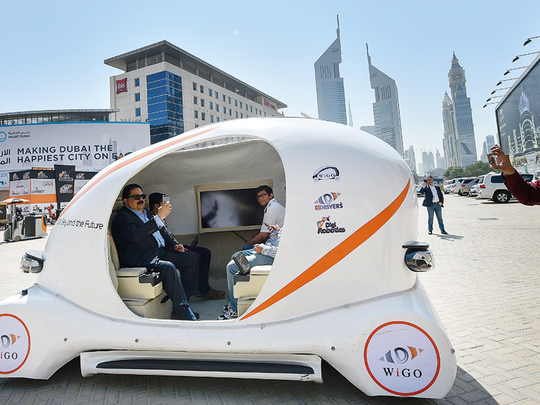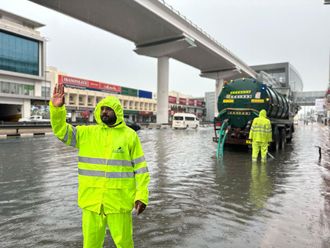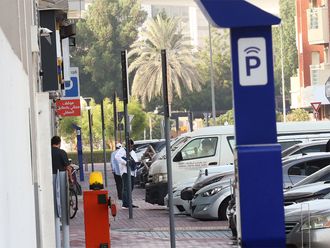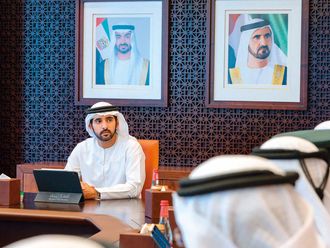
Dubai: Drivers will be able to save precious hours of their time and millions of dirhams in revenue annually once autonomous vehicles will come into operation, experts at a conference in Dubai agreed.
An expert speaking on the first day of the Smart Parking UAE conference on Wednesday said that autonomous technology will not require people to go around and wait for parking as the driverless vehicles will mostly pick up and drop off passengers, which will mean more than half of the parking spaces will be redundant, saving millions in operational cost.
In most mega cities around the world, every year billions of dirhams are wasted and valuable time in people’s daily life is lost as drivers spend hours looking for a parking spot, while millions more consumed in operating parking spaces.
According to a recent study, drivers across the world spend an average of 17 hours per year in search of parking, which could otherwise be used productively or in leisure.
The study also shows that an individual wastes around Dh1,000 in fuel and energy required in going around in search of parking, which is in addition to the parking fees paid on a daily basis.
While specific local data on parking is unavailable, according to Roads and Transport Authority (RTA), which targets automation of 25 per cent road trips in Dubai, the city will see a 44 per cent cut in cost of transportation which includes parking when it meets the autonomous transportation target.
According to the data, Dubai will save Dh1.5 billion annually by cutting down CO2 emissions alone, while the economy will see returns to the tune of Dh18 billion through a shift towards autonomous transport by 2030.
“Right now a lot of time and money is wasted looking for parking in every major city in the world and Dubai is no exception. A study in the UK showed that drivers spend 44 hours per year in [search of] parking and with the size of Dubai and its vehicle density, it would not be far behind,” said Zulfiqar Ali, a UK-based transport expert who gave a keynote address at the conference, said.
He added that autonomous technology, which is the future of transport, will help change the way people move and park.
“In most major cities, around 50 per cent of the parking spaces are unused, there are only demands in certain areas of every city, so once the people start use the driverless vehicles the demand for parking will go down as these vehicles will drop the passengers and move on. There is an estimation that more than 80 per cent of the parking space will be redundant,” said Ali, who is an interim head of traffic and highways network at the UK’s Southend-on-Sea Borough Council.
While other experts at the conference agreed that though autonomous technology will transform the mobility sector, it will also throw in new regulatory and logistical challenges.
“Parking is such an important part of transport plan. It is among the top three issues in a development, and it will continue to remain important, but to a lesser extent. Autonomous technology is going to have a big impact in the way [people] move around and park, but that doesn’t mean parking will be redundant,” said Martin Tillman, director of Transport Planning at Aecom.
Tillman added that there is no doubt that the way parking spaces look and operate has to transform drastically and new technology is already having its impact on the parking systems.
However, both agreed that with Dubai’s eagerness to adopt new technologies, the emirate could be one of the first cities in the world to see a shift towards autonomous transportation.
207 new paid parking bays in Al Zahiyah area
A total of 207 standard paid parking bays have been created in sector E14 in the capital’s Al Zahiyah area, the Integrated Transport Centre (ITC) announced in a statement released on Wednesday.
The sector is bound by Al Mina Street in the north, Hamdan Bin Mohammad Street in the south, Khalifa Bin Zayed the First Street in the east and Street 26 in the west.
Among the new parking spaces, which are all temporary, 82 will be residential parking spots that are reserved for residents in the area between 9pm and 8am every day.
Mohammad Al Muhairi, deputy general manager of the ITC, said the new paid parking bays would decrease concerns with illegal parking in the neighbourhood. He also urged motorists to refrain from double parking, parking their cars in the middle of the road, at drop-off and pick-up points, on pedestrian crossings, at access points or blocking fire hydrants.











